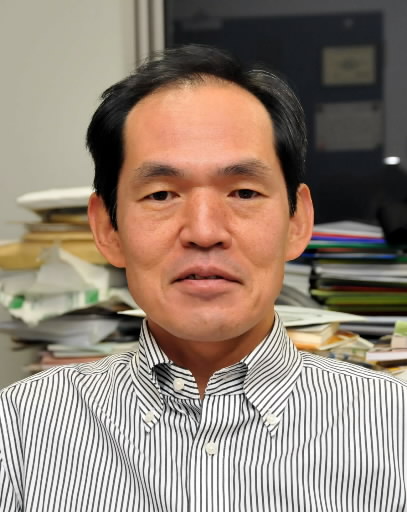Interview with Kazumi Mizumoto, professor at Hiroshima Peace Institute, on U.S. defense review
Feb. 5, 2010
by Junichiro Hayashi, Staff Writer
What does the "Quadrennial Defense Review (QDR)," which has been released by the U.S. Department of Defense, mean to Japan, a U.S. ally? The Chugoku Shimbun interviewed Kazumi Mizumoto, 52, an associate professor at the Hiroshima Peace Institute of Hiroshima City University and a specialist on international politics.
Below is the summary of Professor Mizumoto's thoughts:
It does not appear that U.S. President Barack Obama's emphasis on international cooperation is fully incorporated into the contents of the QDR. This may be a result of rivalries that have arisen within the United States.
Regarding U.S. strategy for Asia, which also involves Japan, the U.S. wariness toward Chinese military expansion stands out. But the purpose of the QDR is to name potential threats to the security of the United States and outline U.S. military strategy. It is important not to judge the situation by the QDR alone, but to keep our eyes on U.S. diplomatic policy which can put a brake on friction between nations. The United States, too, probably thinks it unwise to confront China.
This is also an issue relevant to Japan. How serious are the threats from the military power of China and North Korea to Japan? It is vital for Japan to analyze the situation on its own and devise its own security policy, not merely following U.S. perceptions. The relocation of the U.S. Marine Corps Air Station in Futenma in the city of Ginowan, Okinawa Prefecture, is also an issue for which the Japanese people should develop further discussions and find a solution.
President Obama has repeatedly indicated that the United States will uphold nuclear deterrence for its ally Japan while seeking to realize a world without nuclear arms. But this does not mean that Japan can simply sit idle and wait for nuclear weapons to be eliminated. If Japan desires a non-nuclear policy, the government must pursue a path of security that does not rely on nuclear arms.
Seen from the international perspective, the Japan-U.S. alliance is a military alliance. However, the military alliance is just one aspect of the broad-ranging Japan-U.S. relationship. It is this relationship that we should deepen. The Obama administration is having some difficulty steering the military superpower. Now is the time for Japan to seek a new shape for security that can be persuasive to the United States.
(Originally published on February 3, 2010)
What does the "Quadrennial Defense Review (QDR)," which has been released by the U.S. Department of Defense, mean to Japan, a U.S. ally? The Chugoku Shimbun interviewed Kazumi Mizumoto, 52, an associate professor at the Hiroshima Peace Institute of Hiroshima City University and a specialist on international politics.
Below is the summary of Professor Mizumoto's thoughts:
It does not appear that U.S. President Barack Obama's emphasis on international cooperation is fully incorporated into the contents of the QDR. This may be a result of rivalries that have arisen within the United States.
Regarding U.S. strategy for Asia, which also involves Japan, the U.S. wariness toward Chinese military expansion stands out. But the purpose of the QDR is to name potential threats to the security of the United States and outline U.S. military strategy. It is important not to judge the situation by the QDR alone, but to keep our eyes on U.S. diplomatic policy which can put a brake on friction between nations. The United States, too, probably thinks it unwise to confront China.
This is also an issue relevant to Japan. How serious are the threats from the military power of China and North Korea to Japan? It is vital for Japan to analyze the situation on its own and devise its own security policy, not merely following U.S. perceptions. The relocation of the U.S. Marine Corps Air Station in Futenma in the city of Ginowan, Okinawa Prefecture, is also an issue for which the Japanese people should develop further discussions and find a solution.
President Obama has repeatedly indicated that the United States will uphold nuclear deterrence for its ally Japan while seeking to realize a world without nuclear arms. But this does not mean that Japan can simply sit idle and wait for nuclear weapons to be eliminated. If Japan desires a non-nuclear policy, the government must pursue a path of security that does not rely on nuclear arms.
Seen from the international perspective, the Japan-U.S. alliance is a military alliance. However, the military alliance is just one aspect of the broad-ranging Japan-U.S. relationship. It is this relationship that we should deepen. The Obama administration is having some difficulty steering the military superpower. Now is the time for Japan to seek a new shape for security that can be persuasive to the United States.
(Originally published on February 3, 2010)







